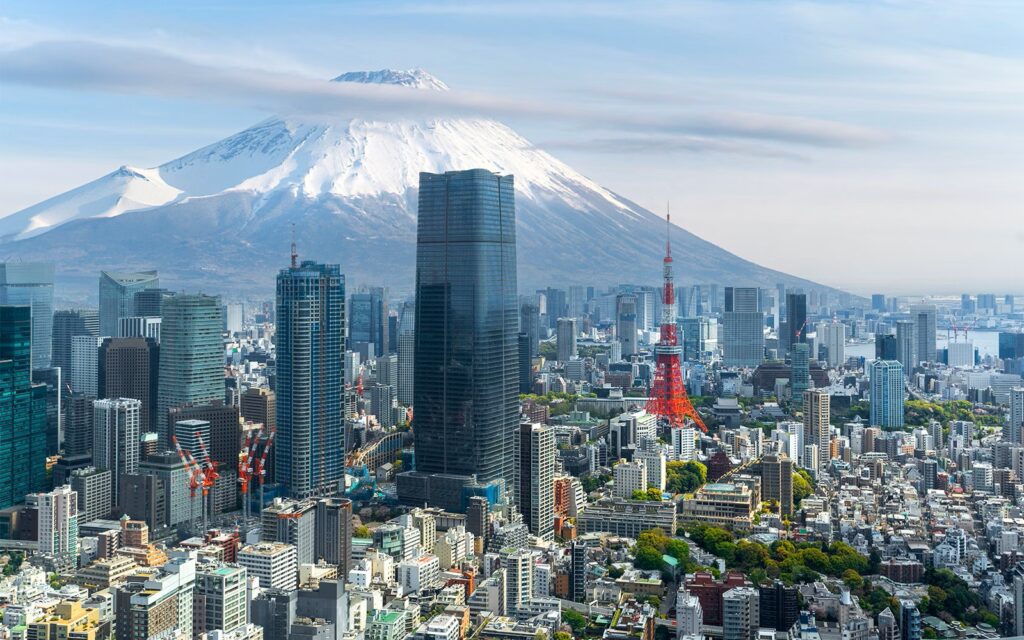(Editor’s note: Writer Chaz Plager grew up in Pacific Palisades and lost his family home during the fire. He taught himself Japanese during Covid and is fluent. This August he is in Japan on assignment and will start his sophomore year this fall at UC San Diego.)
By CHAZ PLAGER
Over four months ago, Donald Trump announced his intention to get back the trust and respect America had lost over the years with his bold new trade plan: tariffs. With some of the tariff percentages reaching over 50%, most laughed it off as a joke that would never come to pass. Four months have passed, and no one is laughing anymore as the tariffs begin to take effect across the world. As the stock market begins to destabilize, many Americans have speculated how this will affect the American economy and the lives of the citizenry at large. However, during my stay in Japan, I began to wonder: How will the tariffs affect the citizenry of this country? Major car manufacturers like Toyota and Honda will see 15% tariffs on all exports, and from the Japanese side, America provides them with car parts, chemicals for cleaning products, and oil. What does the average citizen think about this? I took to the streets of Tokyo, Japan to find out.
First of all, the average awareness among Japanese youth is rather low. I asked a crowd of Japanese youth at an arcade I was at if they had any knowledge of the tariff situation. Only one did, that being Suzuki Kento, second year at Osaka University. And even then, he seemed rather unbothered by the situation. “I can’t imagine it affecting us,” he said. “What are we importing from America? Car parts? I don’t even drive.” When I pointed out that the cleaning products he uses will probably go up in price, he seemed to reconsider. “That actually does kind of suck.”
At that same arcade, I met Shimo Tarou and Kisaragi Minoru, both graduates of Keio University with degrees in economics, who seemed far more concerned about the situation. “I mean, the main problem isn’t that things are going to get more expensive,” said Shimo. “The problem is that Trump’s an idiot who will run his economy into the ground— and then the rest of the world, including us, are probably going to experience economic downturns as a result.”
“I don’t know about you, but I’m a bit worried about things getting more expensive, too,” Kisaragi chimed in. He held out an expensive-looking leather suitcase. “I need a special type of cleaning liquid to keep this in good shape. I don’t want to start paying more than I do already.”
And most recently, I met with Sugimoto Takuya, a family friend of mine who happens to also be the vice president of CITI Bank Japan. You may know him for his work on the US and Nippon Steel deal. As someone who has sat in the room with some of the most powerful people in the world, I was sure that Sugimoto could offer invaluable insight into what Donald Trump’s plan is.
“I have no idea what Trump is thinking,” he said. “His idea seems to be that he wants to move manufacturing back to America, but the groundwork just isn’t there right now. Maybe he thinks the companies will move quickly because they see a business opportunity?”
As a matter of fact, Forbes reports that companies have increased layoffs and slowed hiring practices, directly citing the tariffs and “increased volatility” amid markets as the reason. Sugimoto laughed when I told him this.
“I actually finally got that Bentley I had my eye on for a long time pretty recently,” he said, showing me a picture. “And then Trump announced the tariffs. If I need to take this car in for repairs any time soon, it’ll cost me a fortune. Couple that with the rising gas prices, and I— as well as my coworkers— are not very happy. I can only imagine we will be even less happy when the world markets crash.”
All hope is not lost, however. Japanese Prime Minister Shigeru Ishiba recently reported that he is “still in talks” with Trump and believes “a deal can be reached.” But until then, Japan will just have to wait and see what happens, all while considering the famous phrase: “When America sneezes, the world catches a cold.”

